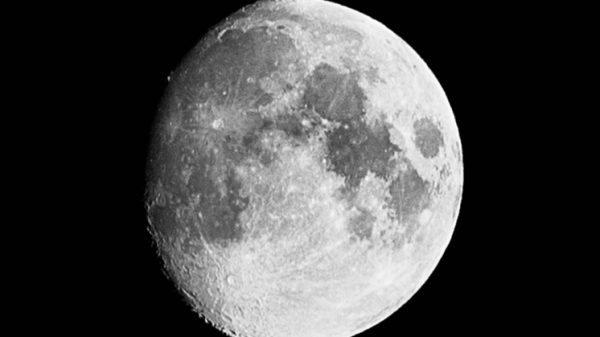 Pioneers: Charlotte Cornwell, Julie Covington and Rula Lenska in Rock Follies. Photo: Fremantle Media/Shutterstock
Pioneers: Charlotte Cornwell, Julie Covington and Rula Lenska in Rock Follies. Photo: Fremantle Media/Shutterstock
Here's a teaser for your next pub pop culture quiz: Which 1970s TV program was the first to throw the word «Jerk off» into the living rooms of the nation? It wasn't some Dennis Potter psychodrama or Alan Bleasdale agitation; it wasn't some sort of swearing at the jaded politician's Robin Day. It was a two-season, 12-episode ITV drama that ran from February 1976 to June 1977, won three BAFTAs, spawned a chart-topping platinum album, and was described by Rula Lenskaya, one of its stars, as «the most exciting an event that has ever happened in my career … nothing like it has ever happened.”
Rock Follies is a bold, brash, taboo-breaking show that chronicles the misadventures of all-female rock band The Little Ladies — Dee Julia Covington, Nancy «Q» Cunard de Longchamps of Lenska, and Anna Charlotte Cornwell — as they travel the world. the dangerous reefs of the music business of the mid-1970s and the sharks (and sometimes etta sharks) that swam in its murky waters. It was written by expatriate American playwright Howard Schuman, and the music, which includes everything from proto-blondie to big band and Broadway, was composed by Andy Mackay of Roxy Music.
You knew you were in for a wild ride from the opening credits, which featured topless neon go-go dancers, but nothing prepared you for the heady mix of communal gritty realism and fantastic musical backdrops shot in the studio on a newly minted video that gave a slightly hallucinatory sheen to everything, a cross between The Rocky Horror Picture Show and Derek Jarman's early fantasies.
There was a juicy assortment of support players; Derek «Catastrophe Charlie» Thompson with a fearsome perm as a bisexual songwriter, Bob Hoskins as a pompous would-be Svengali, and Tim Curry as an incorrigibly Tim Curry-like sullen rock beast named Stevie Streeter. It's no surprise that «Rock Madness» made a seismic, even mind-altering impression on the 15 million viewers it regularly attracted. Paul and Linda McCartney applauded the depiction of «the elation and boredom of life on the road» and Sally Wainwright («Happy Valley») said it inspired her to become a writer «looking way beyond Coronation Street».
“It was such a revelation,” Soft Cell’s Marc Almond said of the show. «And it remains iconic among all who saw it.»

It remains a select few — due to a legal dispute after Rock Follies was first shown on the air (more on that later), it had a largely obscure afterlife. Now, however, a new musical-theatrical version of the Little Ladies odyssey is set to open in Chichester, directed by director Dominic Cook and writer Chloe Moss. That's why Schuman and McKay sit in a London rehearsal room, equally surprised and stunned by the distant trills and hooves that herald the second coming of the Rock Follies nearly half a century later.
Schuman, now an older but still brilliant octogenarian, dates the revival to 2019, when BFI aired a couple of episodes as part of the musical season. “The response has been amazing,” Schumann says. «Comedy has landed — and I'm a comedy slut, I love to hear laughter — but there was also a scene in the music publishing office where a guy who looks oddly like Harvey Weinstein insists on a full tongue-out kiss as part of the deal, and the audience gasped. There were so many resonances in the post-MeToo world.»
Schuman and McKay were approached by Mel Kenyon, an elder literary agent who wanted the rights to develop the material as a musical: «And I felt it was time for that,» Schuman says.
 Charlotte Cornwell, Julie Covington, Rula Lenska and Emlyn Price in Rock Follies. Photo: Fremantle Media/Shutterstock
Charlotte Cornwell, Julie Covington, Rula Lenska and Emlyn Price in Rock Follies. Photo: Fremantle Media/Shutterstock
The Rock Follies certainly intruded into the crass politics of their era—every episode featured a certain proportion of armchair anarcho-syndicalists or radical collectivists ostentatiously brandishing books with titles like The Psychopathology of Imperialism in Trinidad—but the focus was on the second wave. feminism. embodied Little Ladies and their desire for «money, energy and… liberation!»
“Rock is power,” Anna from Cornwall says in one episode, and Cornwell (John le Carré’s sister), who died of cancer in 2021, felt that this was the beating heart of the show: “It was about three women in world dominated by men. It was about the use of male power, and that was something new and unusual. It was the first television series that seriously considered how women could be manipulated in the media.”
As a gay and American transplant, Schuman certainly brought a clear outsider's eye to the Little Ladies' struggles. «I've always had a core group of female friends, and they've all been in relationships with guys who weren't at their level,» he says. «When I came to London and broke into television, I saw again that women are pretty much thwarted when it comes to positions of power.» He vividly remembers the reaction when one of the show's musicians asked his mother, an office cleaner, why she was involved with the Rock Follies: «Because I understand what these women go through,» she replied. /p> 
This hatred was refracted through the different characters of the main characters: the greedy Covington, the prickly Dee (who calls everyone «roosters»), the domineering but fragile Q Lenska (who thinks she is a timeless woman — «I should have been Dietrich in the 20s» ), and Cambridge Cornish alum Anna (who bakes whole grain bread to calm her nerves) is Pixie Spice, Posh Spice, and PhD Spice, if you will.
The new cast — led by Angela Marie Hurst as Dee, Zizi Strallen as Q and Carly Bowden as Anna — is a generation different from the original, as is Moss. However, talking to her makes it clear that the truths of the Rock Follies are woefully eternal.
«We did a series of workshops with women in the music business and it quickly became apparent that the issues raised in the show are just as relevant and relevant today,» she says. “The most amazing thing about this is that the topics are still relevant.” Hence the decision to leave the musical in the 1970s: «Somehow more aware that almost half a century later, the same battles are still being waged.»
 New generation: Carly Bowden, Angela Marie Hirst and Zizi Strallen in rehearsal Photo: Johan Persson
New generation: Carly Bowden, Angela Marie Hirst and Zizi Strallen in rehearsal Photo: Johan Persson
There were also fights behind the scenes. The poster for the new musical has the line «Based on an original idea from the Rock Bottom Group,» and indeed, three actress-turned-bandmates (Annabelle Leventon, Gay Brown, and Diane Langton) pitched the idea to the Thames Theater Department, only to find themselves suspended from any participation in subsequent proceedings. After a legal battle, the three suffered significant damage a few years after Rock Follies went on the air and Thames was found to have violated confidentiality for using their idea, making and running the show. It's an intriguing meta-twist to an already spicy storytelling that makes Rock Follies even more ripe for a reappraisal.
“We were way ahead of our time,” says Andy McKay, “and after all these decades, you know how much we squeezed in there, and what a rich drink it was.”
«Now I think we are going through the same political moment as then: there is a feeling of exhaustion, a lot of anger and a real thirst for change,» says Schumann. We pause as the Rock Follies reach their raucous climax in the rehearsal room on the 23rd. Schumann rays. «I'm looking forward to seeing how many nerves it hits this time around.»
Rock Follies plays at the Chichester Festival Theater from July 24 to August 26; cft.org.uk

























































Свежие комментарии